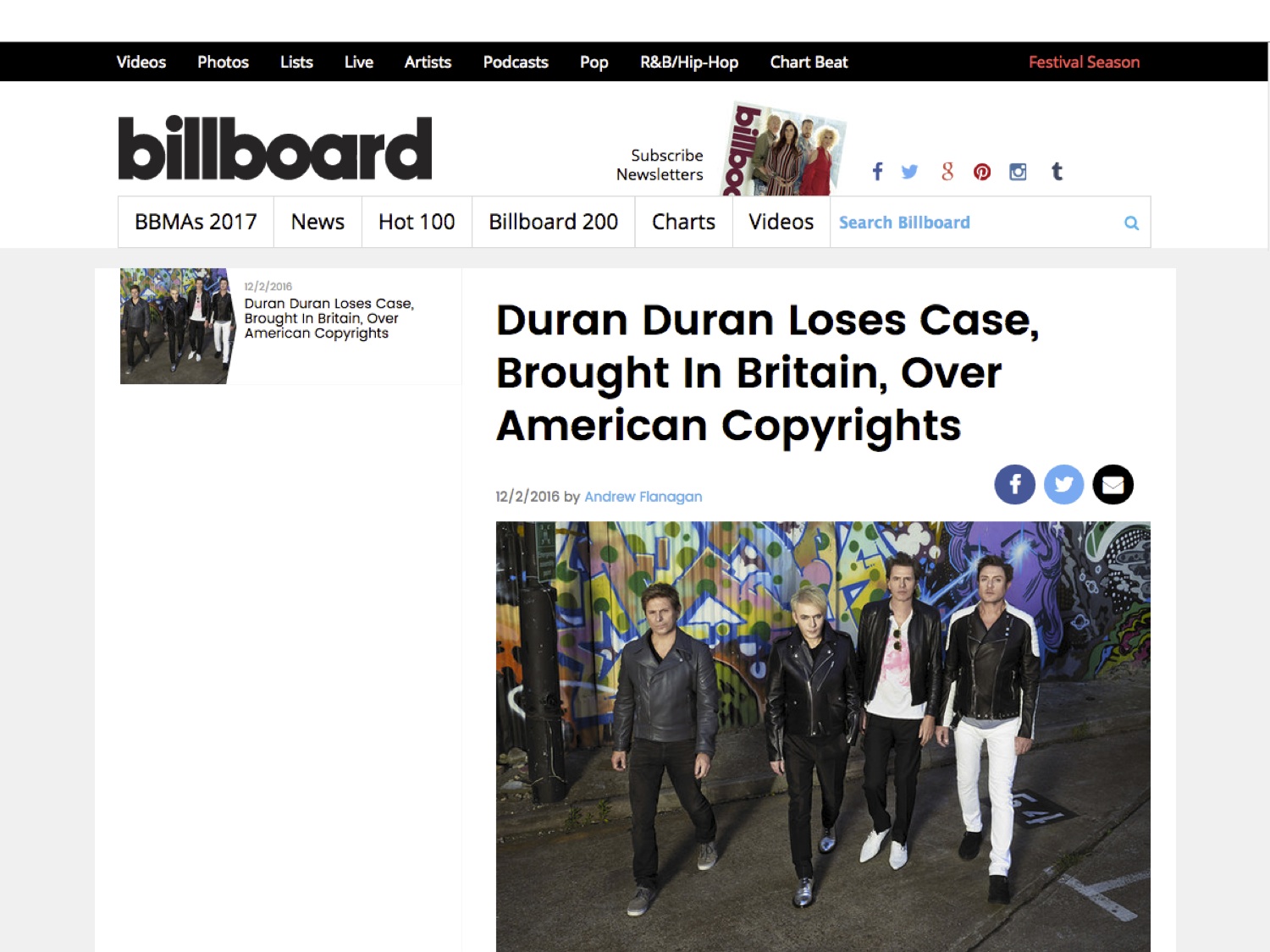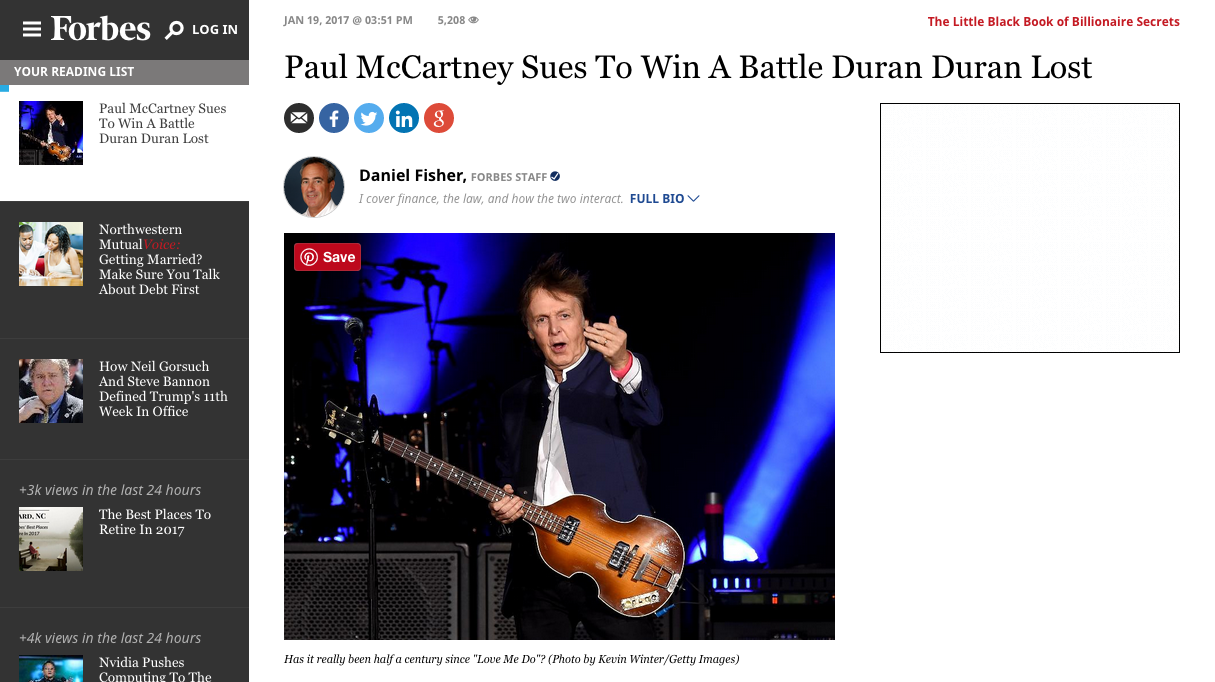As controversial and important as this law is, there have been surprisingly few lawsuits about it, between artists and record labels and/or music publishers.
However, two recent suits have been in the news.
There was a case brought by Sony/ATV Music Publishing against Duran Duran in London, which, in the widespread opinion of US copyright lawyers, had an utterly ridiculous outcome.
The songwriters of Duran Duran sent a termination notice to Sony/ATV, with regard to the US copyrights in their songs, to be effective 35 years after publication. They had every right to do this, as discussed on this website. However, Sony/ATV had a different opinion, and sued the songwriters in London, alleging that the exercise of the songwriters’ termination rights was a breach of contract, because the songwriters had agreed to give their rights to the publisher for the life of copyright. Something like “you agreed to give us these songs forever, so you have no right to even send us a termination notice.” A judge in London agreed, and ruled for Sony/ATV.
However, it is our opinion that such a ruling is not valid with regard to the US copyright; British songwriters have the right to exercise their rights under US law. Furthermore, a UK court has no jurisdiction to decide what happens by operation of US law. Indeed, on the issue of breach of contract, all the parties knew, when they signed the agreement in the early 1980s, that § 203 (the “35-year law”) was part of our law. It was no secret. In fact – and this is very important – our law has a provision that before the 35-termination comes into effect, any provision of a contract that says a songwriter won’t (or can’t) exercise his or her rights is invalid. That means music publishers can’t make songwriters give up termination rights years before they even are exercisable. Our US policy towards copyright termination is very, very strong.
No one takes this case seriously, it’s that bizarre. It has made some of our British clients a bit nervous, but we can assure you it has no force or effect.
Here is the Billboard article about the case:
Which leads us to the second recent case.
After the Duran Duran ruling, Paul McCartney and his attorneys began to be concerned that Sony/ATV would take the same position, or take the same action, against him. He had filed terminations for a very long list of Beatles songs, that is, for his one-half interest (the Lennon half was not involved). This was done under § 304(c), the 57-year law for compositions created prior to 1978, but the concepts are the same. McCartney’s lawyers very smartly contacted Sony/ATV, to see if there were going to be any issues with regards to the terminations, along the lines of the Duran Duran case. After failing to get a definitive answer from Sony/ATV management, and some unsatisfactory correspondence, McCartney sued in federal court in New York, which is the proper forum for such matters (as opposed to a strange trial court in London, that has no jurisdiction and apparently no knowledge of US law). He is seeking a declaration that he has the right to terminate, and that US law controls the isses. We predict that Sir Paul will win this one, in a hurry.
Here is an article about the case:


